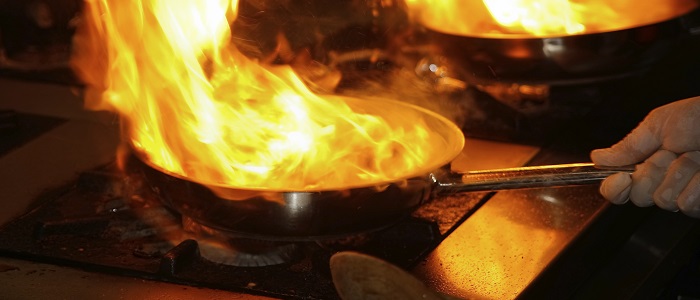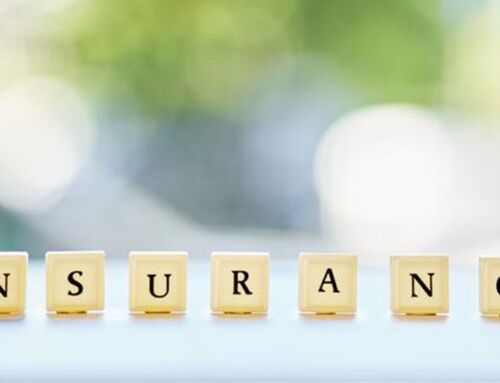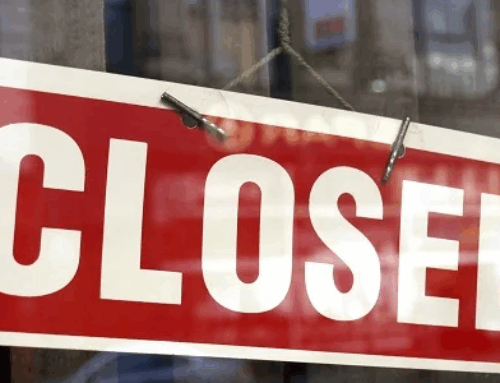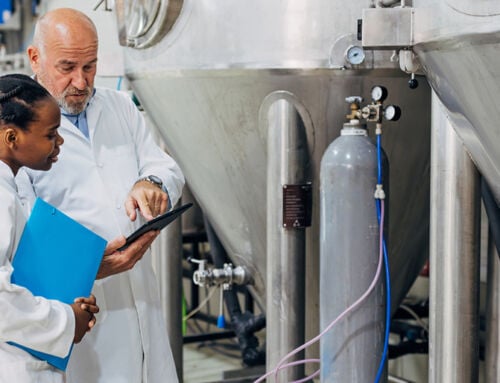No two restaurants are alike. As such, each faces its own set of risks. With the food industry facing countless claims every year, it’s your job as a restaurant owner to be aware of the risks and exposures facing your business. It is vital that you take preventative measures to ensure that in the event of a claim, your business will be up and running as quickly as possible. Below, we’ve outlined three common claims restaurants deal with, and key tips for mitigating your exposure to these risks.
Fire
A major hazard associated with the restaurant industry is cooking. Grease vapour produced from cooking can accumulate throughout the kitchen and cause a high exposure for fire. Furthermore, cooking surfaces such as grills and deep fryers can contribute to the spread of fire and can easily result in an engulfed kitchen in a matter of moments.
What to do: If you don’t have property insurance already, look into getting coverage. Have an automatic fire extinguishing protection system on hand that includes hood and filter systems. Check your fuel shut offs for your grills and deep fryers and make sure they’re easily accessible and tagged. Also, check to ensure handheld fire extinguishers are conveniently located throughout the kitchen.
Theft
As a restaurant owner, you’re running a cash-heavy business. Your employees will most likely be handling large amounts of money, and keeping it on their person for the duration of their shift. You may also carry expensive cuts of meat and bottles of alcohol in your inventory. If you’re a fine dining establishment, you may have other costly inventory, such as works of art, collectibles, and memorabilia, making your restaurant a prime target for criminals.
What to do: You can help protect your cash, expensive inventory, and valuables with property insurance coverage. With property insurance, you could be covered for theft of inventory (food and alcohol), computer equipment, furniture, and fixtures, as well as cash.
Food poisoning
An inoperative or damaged fridge or freezer presents the risk of food contamination, which can lead to food poisoning – one of the greatest risks facing the food industry. When a customer claims food poisoning after eating at your restaurant, you may be liable, and ultimately, they could sue your business. That is why you’ll want to be prepared with the necessary food liability coverage. Typical commercial general liability (CGL) insurance policies exclude this coverage.
What to do: Obtain professional liability coverage, which may cover you in the event of a food-related loss. This type of coverage typically extends to loss of income, required cleaning of equipment, and food replacement costs from contamination in the event a food inspection is required.
Protect yourself and your restaurant
Despite all the preventative measures you have in place, something could still go wrong at your restaurant. That’s why having the right protection in place is extremely important and beneficial. To learn more about protecting yourself and your business, visit our restaurant insurance page today.
This blog is provided for information only and is not a substitute for professional advice. We make no representations or warranties regarding the accuracy or completeness of the information and will not be responsible for any loss arising out of reliance on the information.







